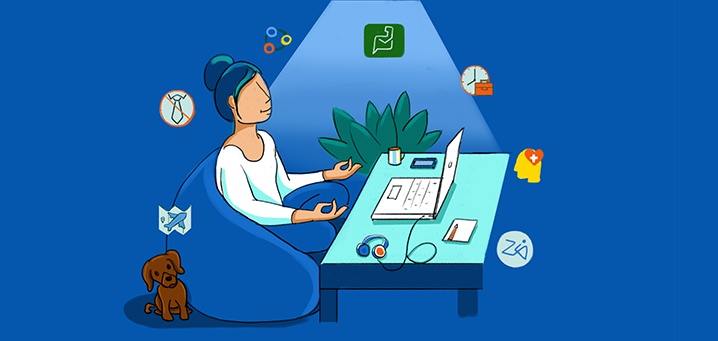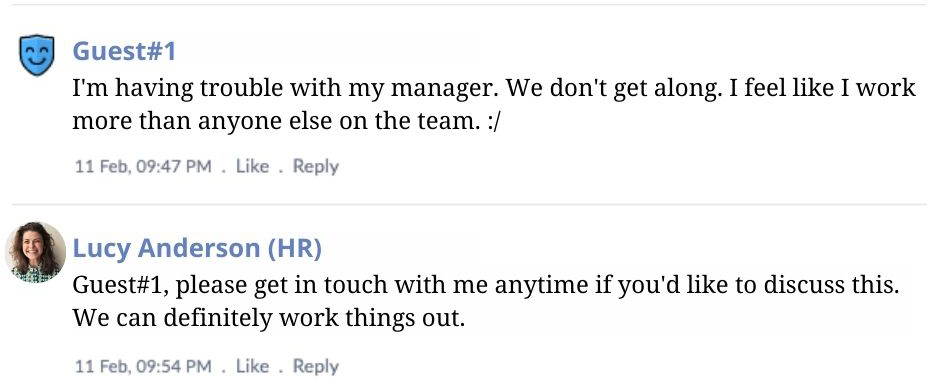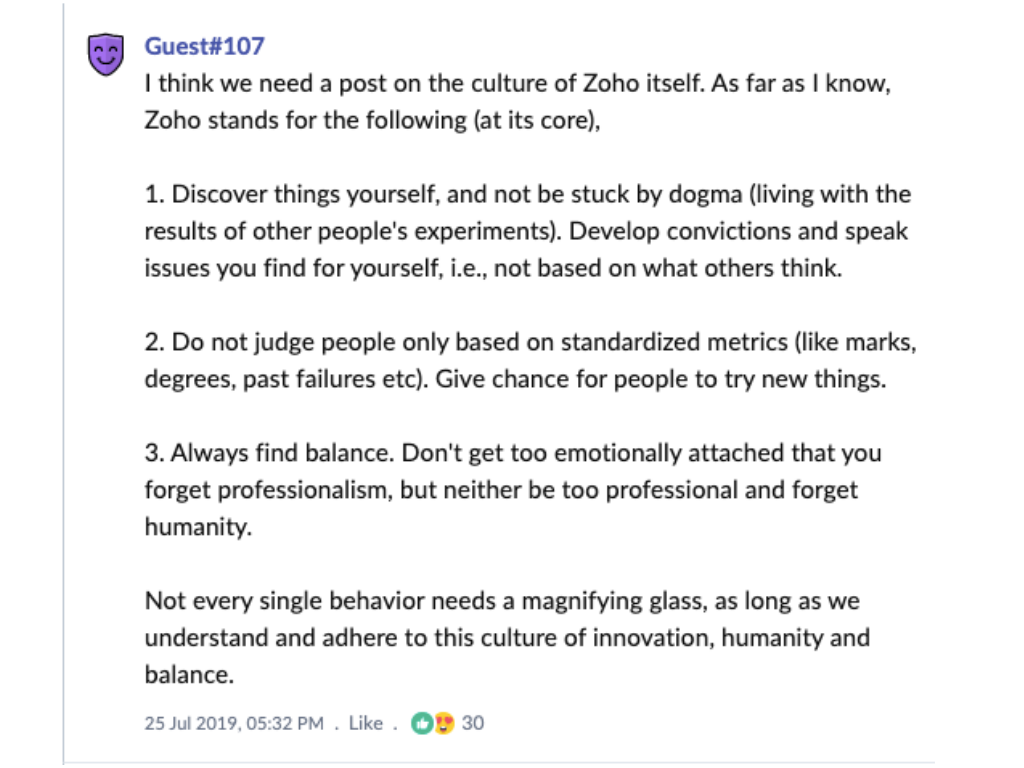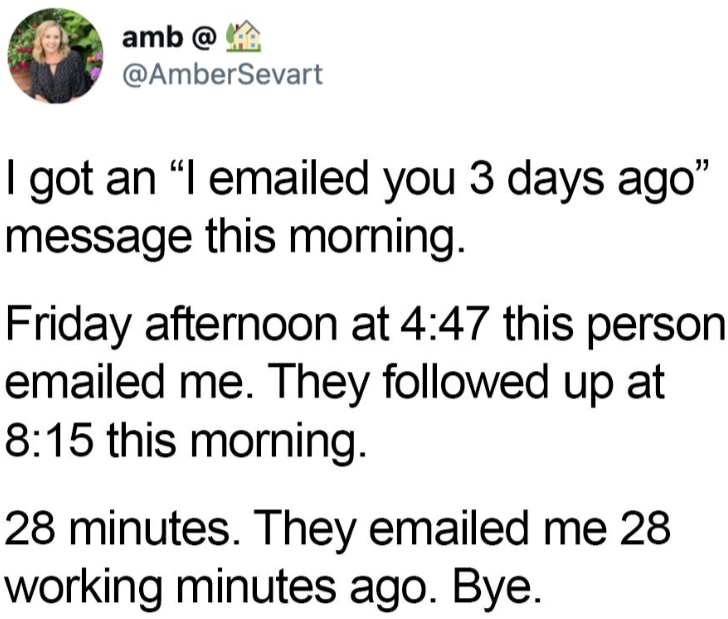8 Ways IT Managers Can Support Employees' Mental Health
May 26 · 11 min read

Stress, burning the midnight oil, exhaustion, breakdown, burnout—these are phrases often heard and just as often disregarded in the workplace. Many businesses fail to address the mental health of their employees. Amidst the constant requests, emails, meetings, and deadlines, it can be hard for employees to prioritize their well-being.
With work from home becoming the norm, it's getting harder for people to detangle their identities from work. Many people give 110 percent at work and tend to forget that there's more to life than their job. On top of this, when employees are struggling to stay on top of things at work, it often affects them in their personal lives.
Behind every successful business there are three factors or 3Ps: people, purpose, and passion. What happens when people are unhappy? What does this mean for you as a leader, and how does it affect your business? And how do you promote a positive work culture? Let's take a look.
How does poor mental health affect an organization?
- Happy employees are the foundation of any successful organization; your retention rate matters. When employees are stressed, they will look for more desirable opportunities. A study by the American Institute of Stress revealed that 19 percent (nearly one in five) of employees quit their jobs due to stress.
- If you're understaffed, it puts tremendous pressure on your workforce. However qualified they may be, overworking them is not an effective way to get the job done. The quality and quantity of work will take a hit. Forcing employees to rush to complete their daily tasks results in poor judgment, wrong decisions, and errors that could potentially affect customers, too.
- Negative interactions between employees can quickly turn into insubordination. This can jeopardize the welfare of everyone involved.
The result of poor mental health in your employees is a quantifiable loss in productivity. When your organization is performing poorly, it's important to determine why. Are employees stressed over their workload? Stress can have a major impact on productivity, so if your employees are feeling stressed, it's essential you find and address the cause.
What we're doing to help our employees, and what you can to help yours!
Truth be told, there isn't one particular path or defined solution to handle such a sensitive issue. It's up to you as a change maker to discover what doesn't work. Once you've identified your problem areas, you can focus on providing a long-term, sustainable solution. For us, we found the lack of required resources and inefficient usage of existing ones were causing our employees undue stress.
1. Help yourself, then help others
To help others, you first have to help yourself. Ensure you are in the right headspace. No job is 100 percent stress-free, but if you find yourself overwhelmed, it might be time to reevaluate your workload and delegate some of it.
Next, help others. Ideally, your organization's HR department should organize training sessions to help you spot the signs of a coworker in distress. Even if it doesn't, try to communicate with your team and see who could use some support. Anonymous suggestion boxes and surveys are also an effective way of assessing your team.

Our social collaboration tool, Zoho Connect, allows users to comment anonymously. This lets employees express their concerns without fear of retaliation, and let's face it — that's when you'll really get honest feedback. We use this to gauge problem areas and offer solutions. Conflicts are common; there will always be situations where people don't get along, and that's just part of life. If, however, you find that workplace disputes are affecting productivity, consider keeping HR in the loop. They might have to intervene to help find a resolution.
2. Pay attention to workplace culture
Create an environment that helps employees look forward to Monday. At ManageEngine, we don't have a dress code or strict work hours. Working 12 hours a day in suit and tie doesn't automatically translate into quality output. Once you stop focusing on the smaller details and look at the bigger picture, everything else falls into place. Work-life balance is essential, and we try to emphasize on it.

ManageEngine follows a horizontal work structure with fewer levels in the hierarchy. This gives people more control over their role (less micromanaging), the freedom to express themselves, the chance to experiment, and the confidence to contribute to the team instead of just following basic instructions.
3. Make use of resources
Admins should have a streamlined way to help employees. Whether it's a help desk portal, mailing system, or texting channel, it has to be organized. The first thing we did was create a uniform system as a first point of contact for employees to get help. During the lockdown, we created a Work from home channel on our communication portal for employees to reach sysadmins for minor issues. All employees have to do is mention what they're having trouble with, and the associated sysadmin who is available gets in touch with them.
In the wake of the pandemic, we were reminded why we value our help desk so much. Besides having to completely change our mode of working in a matter of days, there were unprecedented challenges that we had to overcome quickly. Thankfully, our help desk portal makes it easy for employees to raise requests and view solutions in the knowledge base.
Help desks are incredibly useful, not just for admins, but for employees, too. You can monitor the status of your request and find suitable solutions quickly. If your organization doesn't have a help desk tool in place, now might be a good time to invest in one.
4. Define clear boundaries
Work call at 9pm? No.
Need a report by 10pm? Nope.
Assigning tasks to someone who already has a lot on their plate? Definitely not happening.

Your employees do not work 24/7 (and neither should you). They're not obliged to respond right away, especially out of regular work hours. Unless it's pressing and you don't have a choice, try to get everything done within business hours.
5. Dedicate time and space to not discussing work
"All work and no play doesn't just make Jill and Jack dull, it kills the potential of discovery, mastery, and openness to change and flexibility and it hinders innovation and invention." -Joline Godfrey
Meetless Mondays: A lot of organizations are now taking up Meetless Mondays, a creative twist to the popular vegetarian movement "Meatless Mondays." It recommends that you push your meetings to Tuesday to give employees time to catch up with their work and settle into the work week at their pace.
Team bonding activities: Zoho offers a day off every year for employees to take a short team trip. Team trips are a great way to blow off some steam and really get to know your coworkers beyond the workspace.
6. Be flexible
The future of work is hybrid. A hybrid work model is now the most common way to get the job done. It's effective and, most importantly, inclusive. It is a game-changer in boosting productivity and gives employees a chance to balance their work and personal life.
At Zoho, we've embraced the possibility of hybrid work for the foreseeable future. Only essential staff are asked to work in-office while this is optional for everyone else. Either way, there is no compromise on the quality of work.
7. Start small
Automation is not something to be afraid of. It's a tool, and if utilized properly, can be a huge benefit to your business. Many small-to-medium-sized businesses avoid automation because they're worried it's too complex. But if a task needs to be carried out multiple times, it should be automated. Your staff can focus on more essential tasks instead of repeating the same simple tasks over and over. Automation helps you save time, lower operational costs, and collect quality data with which you can make well-informed decisions.
How can we talk about automation and not mention artificial intelligence (AI)? In today's fast-paced world, nobody likes waiting. Everything needs to be done quick and correctly, and AI is the best way to deliver on that front. At ManageEngine, we have our very own conversational virtual support agent, Zia. Zia's main focus is creating a positive employee experience.
As a potential first point of contact, Zia reduces service desk teams' response times and helps significantly increase end-user satisfaction rates. Thanks to AI, Zia is continually learning from user inputs to improve the accuracy and relevance of answers. This helps end users more easily get the help they need from the IT service desk.
If you're hesitant, consider starting with low-level automations. Test the waters by using automations to monitor servers and send out alerts for low disk space or routine recycle bin clean-up. By eliminating lower level tickets, you can maximize the return on investment (ROI) on the cost per ticket.
8. Invest in mental health

Investing in employees' mental health is just as important as any insurance policy. The WHO has found that for every dollar put into treatment for common mental health disorders, there's an ROI of four dollars in improved health and productivity.
In 2020, we welcomed our first in-house psychologist. Shortly after, we added another expert psychologist to our team to focus on shift-based employees who work long and irregular hours. Employees can seek help anytime through online or direct consultation. Providing a safe space for our work family to cope with the increasing uncertainties during this trying period was at the top of our list, and being able to do that was a remarkable step in the right direction.
We also understand the benefits exercise has to offer in terms of mental health. In our Tenkasi office, employees can join yoga sessions with our in-house instructor. And at our Austin office, you may find team members engaged in a game of volleyball.
We turned to a psychologist to gain more insight on what it means to be an employee in the current climate. Here's what they had to say:
What is the most common complaint from people about work?
"The most common complaint appears to be lack of motivation resulting in dissatisfaction with work performance. What appears to be more pressing is the rigid standards that people hold themselves to. While healthy competition will help, constant upward comparisons and a greater perceived discrepancy between the ideal self and real self leaves the person exhausted and stressed from running behind never-ending goals. This could lead to feelings of anxiety, dissatisfaction, and frustration."
Have you seen an increase in mental health issues since COVID-19?
"Yes, there has been a drastic increase in mental health issues since the pandemic, especially in young adults. The pandemic and the unexpected demands of the situation have left people feeling powerless. With days and nights merging into a non-stop line of work, lack of structure seems to be a major challenge for employees."
What would you offer as a solution to employees and leaders?
"My recommendation is to diversify one's self-concept. You are also an employee and not just an employee. It would also help if we learn to differentiate between preference and demand. Most of us are under the impression that our plans, expectations, and wants will materialize simply because 'they have to...'. This is especially unrealistic in an organization where multiple parties are involved in every task. If we were to restate our thoughts by saying, 'I wish and prefer for things to happen a certain way, but there's no rule that it will happen that way. And if it doesn't, it's not the end of the world!' we could shift from dysfunctional negative emotions to more functional ones.
"Over time, organizations have evolved to address the physical, safety, and esteem needs of employees. However, COVID-19 has triggered an existential crisis, and we need to address the meta needs...needs that make us unique as humans. A work environment that allows individuals to identify their talents and capitalize on them creates opportunities for intrinsic motivation."
Wrapping up
Your team's performance is a reflection of your success as a leader. Spend time every week to check in with your team. A simple, earnest "How are you?" is more powerful than you think. We've talked about how we promote a positive work culture. How about you? Let us know what you're doing to keep spirits up in your organization.
